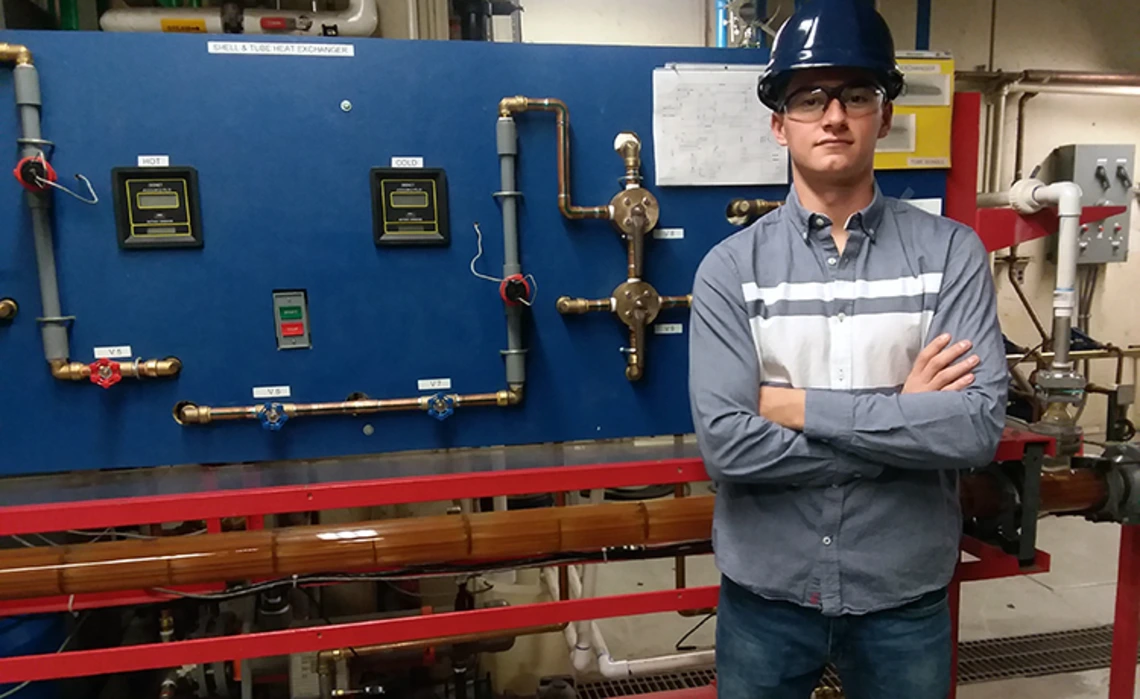Lessons From Equipment Overhaul Carry Senior Toward Career

Glacier Kane spent the summer between his junior and senior years in the basement of Harshbarger – rebuilding an experimental heat exchanger used in CHEE 301A, the first unit operations course taken by chemical engineering majors at the UA.
“At first glance, the project was overwhelming. I had never run the apparatus, and it seemed like all the pipes had no beginning or end,” he said.
With guidance from associate research professor and CHEE’s lab manager Greg Ogden, who directed the rebuild, Kane’s intimidation quickly gave way to creativity and a methodical analysis of the system, section by section, piece by piece.
“It was exciting putting so much effort into the detail, organization and physical rebuild and seeing it all come together,” said Kane, who will graduate in May 2020 with a Bachelor of Science in chemical engineering.
He learned how to safely cut and tap stainless steel pipes, and weld and fabricate a custom steel stand. He gained knowledge of the importance of good seals – glass to glass, fitting to fitting and various soldered connections.
Measure Twice, Cut Once, Stay Dry
Some lessons came harder than others.
“Soaking wet clothes taught me to always ensure the feed valve is closed before unscrewing any couplings,” he said. “Regardless of being told more times than I care to admit, I finally learned the old adage is true: ‘Measure twice and cut once.’”
The heat exchanger apparatus, which produces hot water for the lab experiment, includes a system of pipes and several two-, three- and four-way valves to control water flow. Students in 301A collect temperature and flow data from several heat exchangers with different configurations to determine overall heat transfer coefficients that they compare to values found in literature.
Kane redesigned the system to maximize efficiency, including replacing a half-inch pipe with three-quarter-inch pipe and changing steel fittings to brass, copper or stainless steel fittings.
He hasn’t decided exactly what he wants to do after graduation, but Kane is certain that working with his hands will be part of the equation, and the skills he acquired overhauling the heat exchanger will help move his career forward.
“Most importantly, I learned that breaking down an immense project makes success feasible,” he said.
